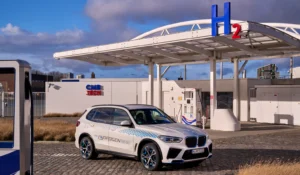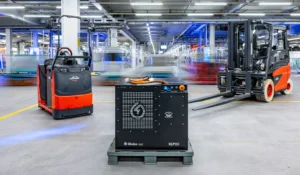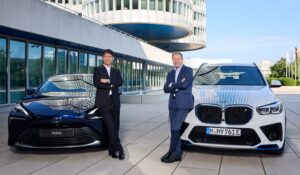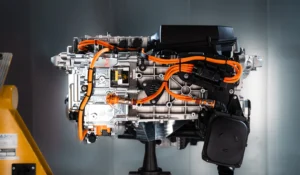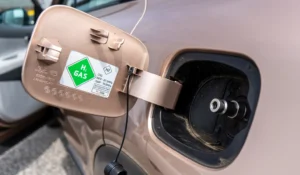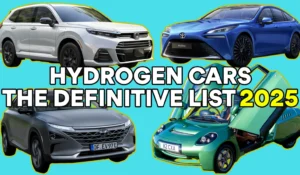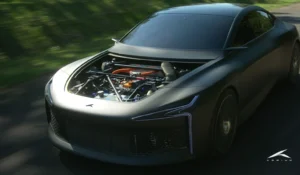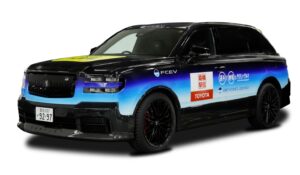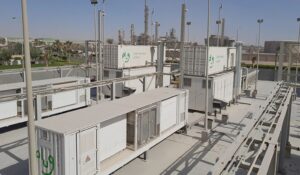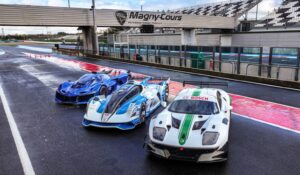BMW doubles down on hydrogen: Acquires hydrogen trucks for logistics fleet
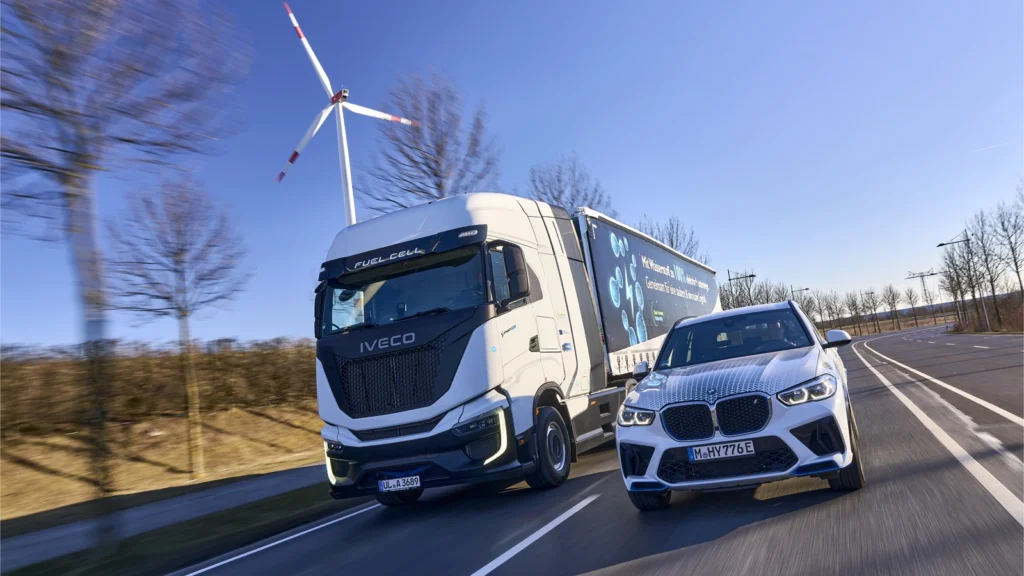
BMW’s hydrogen ambitions aren’t just about passenger cars. The company is now putting fuel cell trucks to work in its logistics operations, rolling out two zero-emission IVECO S-Way fuel cell trucks as part of a project called European H2Haul, a 16-truck trial running across multiple European countries to accelerate the commercialisation of hydrogen in freight transport.
The hydrogen-powered rigs will shuttle car parts between Leipzig, Landsberg, and Nuremberg, giving BMW some real-world data on how hydrogen stacks up for heavy-duty transport.
To keep the pedal to the metal, BMW is backing this up with brand new hydrogen refuelling stations in Leipzig and Hormersdorf, built specifically to keep these trucks moving.
Unlike battery-powered lorries, which can take hours to charge, hydrogen refuelling is quick enough to match the relentless pace of automotive logistics… so long as you can find the fuel.
BMW’s ‘openness to technology’ – or hedging its bets?
BMW has been dabbling in hydrogen for decades, from experimental cars in the ‘70s to its more recent iX5 Hydrogen fleet.
But now, it’s putting fuel cells to work where they arguably are most needed: shifting heavy things a long way.
Michael Nikolaides, BMW’s logistics boss, said: “For the first time, hydrogen-powered trucks will now be used in serial operation for German automobile production.
“This project is an important milestone as we gain experience in serial operation and continue to advance this important technology.”
In other words, BMW isn’t just talking about hydrogen – it’s running real trucks on real routes, testing whether the tech can hold its own against diesel and battery-electric alternatives.
And while H2Haul is the main event here, BMW’s also leading a separate HyCET project to trial hydrogen internal combustion engine trucks in the near future.
These work a bit differently from fuel cell trucks – they’re effectively diesel engines but fuelled with hydrogen instead – but crucially, they can be built with existing engine technology, making them cheaper to produce.
According to BMW, the particularly low level of emissions produced by burning hydrogen means that hydrogen combustion engine trucks are classed as zero-emission vehicles under EU regulations.
DHL, Volvo Trucks, Deutz, KEYOU, and TotalEnergies are all involved too, suggesting hydrogen combustion might have a real future alongside fuel cells.
If there was a nationwide refuelling network, would you buy a hydrogen car?
Why hydrogen? Why now?
Truck makers are still split on the future of long-haul transport – some say it’s batteries, others hydrogen.
Battery-powered trucks are creeping in, but they’re heavy, slow to charge, and reliant on a charging network that barely exists yet.
Hydrogen, on the other hand, offers diesel-like refuelling times and longer ranges, and is reliant on a refuelling network that barely exists yet…
The two IVECO trucks BMW are using will be among 16 hydrogen-powered lorries running across Europe, all funded by the Clean Hydrogen Partnership.
The idea is to gather real-world data to accelerate the commercialisation of fuel cell trucks, while also proving that hydrogen refuelling is easier to implement than BEV charging for long-haul trucks – since it doesn’t require a vast new grid infrastructure.
BMW is pretty set up for hydrogen, with its Leipzig plant using hydrogen-powered forklifts and tugger trains for over a decade, and now running over 200 fuel cell industrial trucks.
The factory has five on-site hydrogen stations, with the newest one allowing fully automated refuelling.
BMW has also integrated hydrogen-capable burners in its paint shop, slowly replacing natural gas and cutting emissions even further.
Looking ahead: BMW’s hydrogen iX5 coming in 2028
BMW is currently ramping up series production and, in 2028, will roll out its first hydrogen-powered production model – the iX5 hydrogen.
The plan is to slot a Toyota-sourced hydrogen fuel cell powertrain into the existing fully electric iX5 platform, and then offer it alongside the usual BEV, PHEV, and ICE versions of the X5.
It’s all part of BMW’s broader “openness to technology” strategy – which you can think of as keeping as many options on the table as possible.
Battery-electric, fuel cell, hydrogen combustion, hybrids, diesel, petrol – BMW’s throwing everything at the wall and seeing what sticks.
And given the massive uncertainty and financial upheavel surrounding Net Zero in Europe’s car industry right now, that might not be such a bad idea.
For now, though, it’s fuel cell trucks on the road, hydrogen refuelling stations under construction, and another step in BMW’s push to make hydrogen a practical part of the transport industry.
Let’s see if it sticks.

